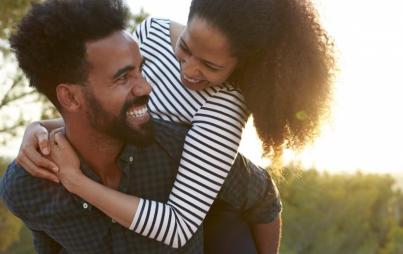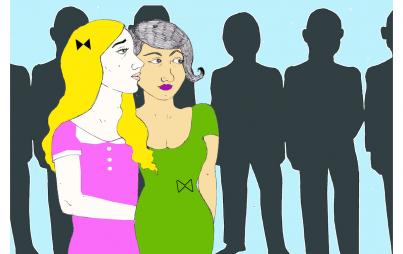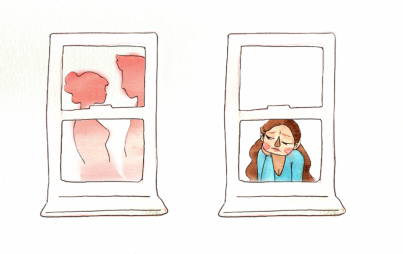
From the new USA drama Satisfaction to Will and Jada and Brangelina, no one is keeping their mouths closed anymore about open relationships. The outspokenness is shining light on a relationship choice a fair amount of people make: While there are no reputable national stats on consensual non-monogamy, University of Michigan psychologist Terri Conley has estimated that about 5% percent of Americans are in one of these types of relationships at any given time.
It's hard to deny the appeal of going open: Imagine the benefits of being coupled or married, with the added enjoyment of complete sexual freedom. But does the connection one person shares with another partner take away from the physical and emotional intimacy of the primary relationship? Are these relationships really capable of making both partners happy? Let's explore how three different couples in open relationships make it work . . . or don't.
Strictly Recreational
Nigel* and Kyra* have been happily boyfriend and girlfriend for nearly four years and currently live together. It's always been mutually understood that the relationship is open because, according to Nigel, "I don't associate sex with love necessarily, and because physical pleasures can be fun without the love component, especially with friends."
Most of the sexual partners Nigel and Kyra have outside of their relationship are people who are already in their social circles and know the deal. Nigel and Kyra also travel frequently, but not always together, so an open relationship allows them to have their sexual needs met while apart. Like many couples, they have rules regarding the boundaries of their relationship, such as always being honest with each other and not bringing drama with their sexual exploits home. While sex outside their relationship is strictly recreational, their relationship is rooted in a true emotional connection.
Keeping It Quiet
Bliss has been in an open "on again/off again relationship" with Justin* for several years, but she still doesn't think honesty is the best policy when it comes to being in an open relationship. Both she and her boyfriend sleep with other people, but it's never explicitly addressed.
"You can't tell your boyfriend 'you suck in bed, I never come, you come too fast,' etc.," she says. "And you can't let bad sex poison a relationship, because it will eventually. We are, after all, animals. If you can get [what you need] with another guy and not a vibrator, what's the harm?"
Bliss has a point; an emotional connection with someone you love doesn't necessarily equate to sexual compatibility. And hey, we all have desires. She also thinks turning a blind eye can have its benefits. For instance, she notes, it guilt-trips her boyfriend into treating her better. "I woke up after denying him sex the previous night and he was in his office on a webcam [having sex with another woman]," she says. "I said nothing and went back to bed. The next day he took me out to the best dinner and I wasn't even mad at him. He was relieved I didn't care and I got spoiled rotten over it." While Bliss' relationship with Justin has its issues, she doesn't think discussing their consensual infidelity or being monogamous would repair their problems.
Polyamorous
Married for 10 years, @Nymphspoly (her Twitter name) and her husband mutually decided to be polyamorous about a year ago. Simply put, polyamory involves a couple that opens up their relationship both physically and emotionally. When I asked Nymps what her boyfriend gave her that her husband couldn't, she said, "My husband is a simple introvert. [My] boyfriend is an extroverted activist. We connect on different things."
Perhaps Nymphs is onto something. Are all people really capable of satisfying 100% of their partner's sexual and emotional needs? On the flipside, though, is the potential for having all sexual and emotional needs met worth risking any drama that may ensue? Nymphs thinks it is: "If you are truly honest and communicative there really isn't any more drama then there is in a monogamous relationship. In fact, [our] relationship got better once we became poly."
It turns out that people in open relationships have a psychological leg-up on their monogamous counterparts. According to Bjarne Holmes, a psychologist at Champlain College in Vermont:
People in [consensually non-monogamous] relationships really communicate. They communicate to death. They are potentially doing quite a lot of things that could turn out to be things that if people who are practicing monogamy did more of, their relationships would actually be better off.
Open relationships aren't just about sex or even love, as they appear to be on the surface. They're about open communication—and that's something everyone in any kind of relationship can work on.
*Names have been changed.
Image: ThinkStock






